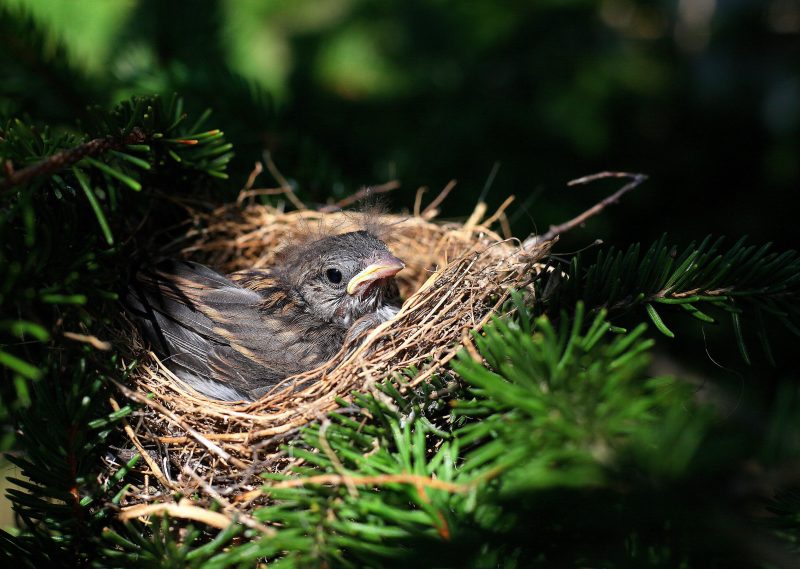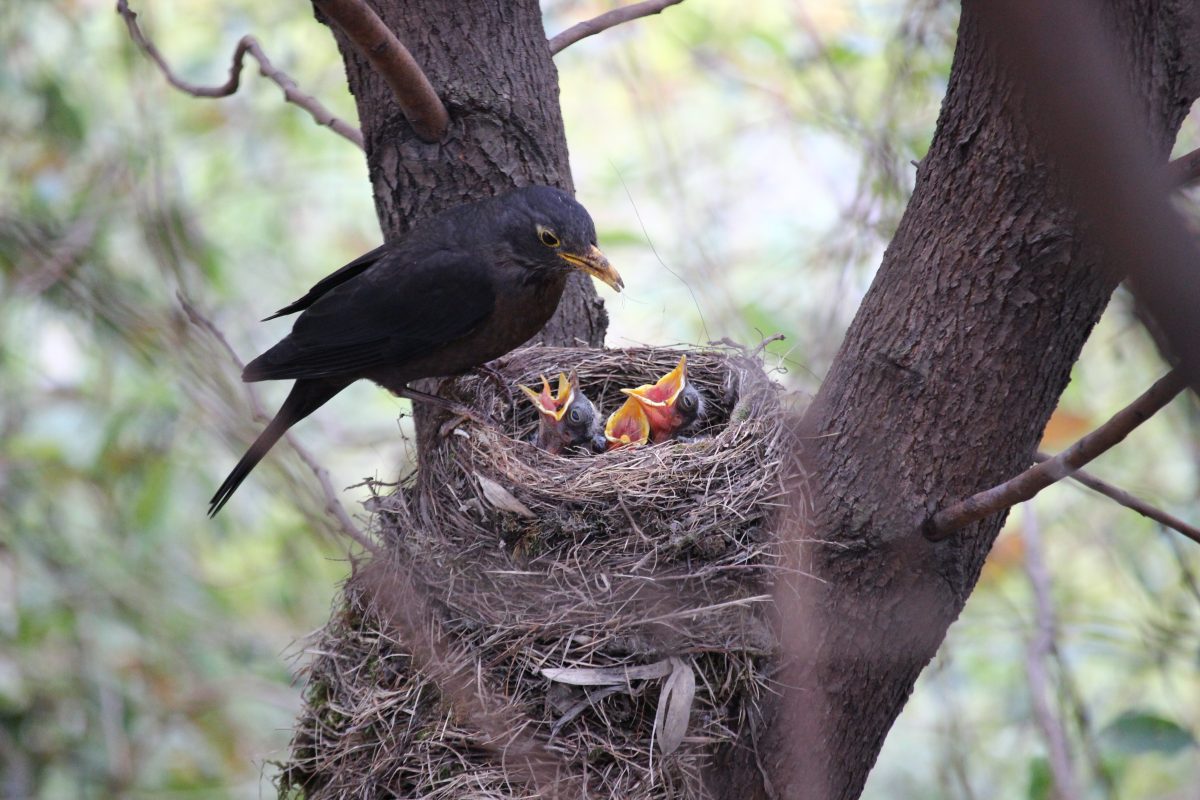Keeping wild birds, their homes and young safe.
The Wildlife and Countryside Act 1981 protects all wild birds in England and Wales. It is an offence to interfere with their eggs, young and nesting sites. If found guilty of breaking the law you could face six months in prison and/or an unlimited fine. Protection extends to birds that some consider pests, examples being corvids and pigeons. A general license, obtained from DEFRA, allows control of certain birds for permitted reasons.
With the thousand of species we are lucky enough to have in the UK comes a variety of nests too. They come in all shapes and sizes. Some are huge constructions metres wide. Others are in exposed positions and some seem very minimal, barely discernible on the ground. There is something they all have in common, they cannot be moved or tampered with. This applies no matter how inconvenient their choice of home is to us.
Nest locations
Summer visitors to the UK, such as swallows and house martins, often nest under the eaves of houses, using mud to fashion a cup like home. Pigeons notoriously choose precarious sites and sometimes use scant or no nesting material. Other birds will utilise gaps in masonry and more still use garden hedges and shrubs to build their homes. Birds can have several broods in a season and often will use the same nest again and again. Some will commandeer a vacant or empty nest from a different type of bird. Whatever the home, be it twigs, moss or a cleft of a tree, we must be mindful that there could be something sharing our space.
How you can help
Along with birds naturally breeding in the spring and summer, we like to take advantage of the better weather too. This is where problems can arise as building projects and gardening activities may need to be put on hold if a nest is discovered. Felling trees, chopping back hedges and digging out shrubs are ideally jobs for Autumn when most birds are no longer nesting.
You can help in other ways too:
- If you are doing any construction, build in ‘swift bricks’ for birds to make their home.
- Provide nesting boxes and sites within the garden.
- Keeping pets indoors whilst fledglings are gaining their wings.
- Provide food and water. Birds will always relish supplementary food and fresh water to bather and drink is essential.
What if you disturb a nest by accident?
At times, even when we are most cautious, accidents happen. If the nest is badly damaged and unoccupied, then don’t attempt to put it back. The parent birds will start again. If there are entire eggs or nestlings and you know the location the nest was in, you can put it back so long as the structure is intact. There is a possibility the young won’t make it but they stand a better chance in their own environment. Fledglings often branch out and even live of the ground for a time after fledging. Therefore, it’s best to leave these and observe them from a distance. RSPCA England and Wales has lost of info on what to do if you find a young bird.
Preventing birds from nesting on your property
If you know for sure there are no birds currently living on your building, there are several ways you can prevents them from making nests. Covers over chimney pots stop jackdaws from taking up residence. There are anti perch spikes too which make it difficult for pigeons and other birds to settle. Netting is another option but this must be checked regularly and be properly installed by a professional. Blocking up holes in wall spaces and removing potential nesting material means birds are less likely to stay.
Avian influenza (bird flu)
The UK is currently under an Avian Influenza Prevention Zone (AIPZ) due to outbreaks happening across the the whole of the UK. All bird species can be affected and Avian Flu is a notifiable disease. Waterfowl (ducks, swans, geese) are amongst the species most affected. If you find a dead bird, particularly a water bird please ring DEFRA on 03000 200 301 or visit their site for the latest information.
Smaller passerine, wild birds that perch, such as finches, sparrows, blackbirds as not considered high risk. However, the least amount of handling is better for bird and always wear gloves and wash your hands thoroughly if you have been in close contact with a bird.


